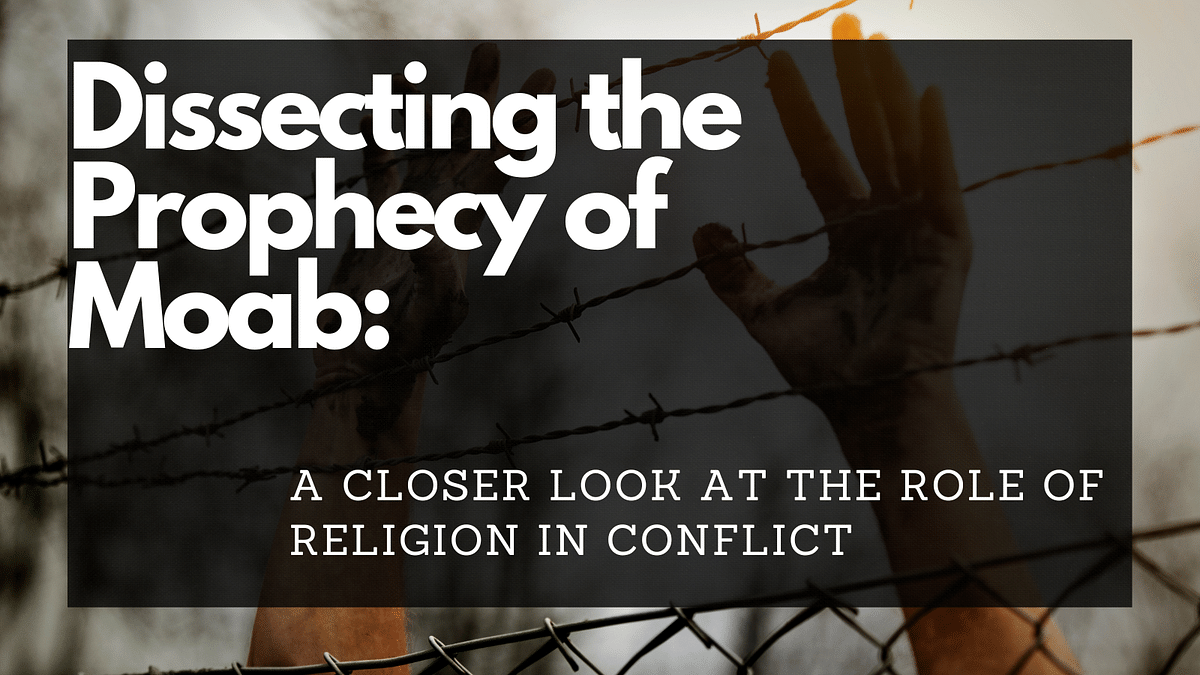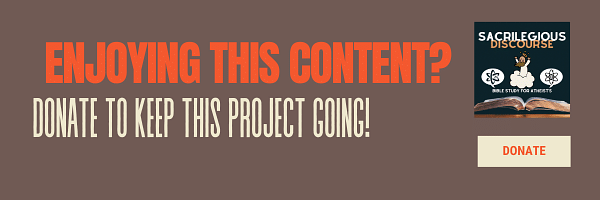
The rich tapestry of biblical prophecies serves as a chronicle of humanity’s relationship with faith, war, and morality. In this week's podcast episode, we delve into the dark and poignant tale of Moab's annihilation, as prophesied in Isaiah, Chapter 15. This account, steeped in despair and sorrow, casts a harsh light on the tumultuous intersections of religious fervor and human conflict.
The Story of Moab
In the first portion of our discussion, we scrutinize the prophecy against Moab, a story steeped in anguish. Moab, once thriving, is described as being decimated overnight, its two cities razed, and its population drastically reduced. This sudden destruction is followed by a heartbreaking depiction of the Moabites' grief – their mourning, their cries to their gods, and their overwhelming despair.
As we delve into this prophecy, the striking similarities between the devastation of Moab and the ongoing Israeli-Palestinian conflict become apparent. The eerie echoes of these ancient conflicts reverberate through the current strife, serving as a chilling reminder of the cyclical nature of religious and territorial conflicts.
Religious Conflict and Modern Relevance
Moving beyond the immediate tragedy, we explore the ripple effects of the prophecy against Moab. It provides a grim snapshot of the catastrophic outcomes when contrasting religious beliefs clash. The controversial use of this prophecy to justify the modern state of Israel, and the alarming notion of celebrating death within this context, are critiqued in this part of our discussion.
As we traverse the murky waters of religious narratives and conflicts, it becomes evident that our understanding of religion must be continually re-evaluated. The annihilation of Moab underscores the imperative need to reflect upon our collective approach to religious differences, and how these beliefs often shape conflicts and their resolution.
Conclusion
In the closing section, we shift our gaze towards the upcoming Q&A Saturday, Patreon Sunday, and a thoughtful examination of Isaiah Chapter 16. Our exploration of the Moab prophecy leaves us with sobering reflections on religion's role in conflicts, past and present. The story of Moab, while disturbing, offers an opportunity to reevaluate our understanding of religious narratives and their impact on human conflict.
Our exploration of Moab’s story challenges us to critically evaluate religious narratives, reminding us of the profound impact they can have on our understanding of conflict, compassion, and coexistence. Through this lens, we gain a deeper understanding of religion's role in conflict and the importance of approaching religious differences with empathy and understanding.
Join us next week as we continue our exploration of religious narratives and their relevance in contemporary conflicts. Our deep dive into the annihilation of Moab, although unsettling, has laid the groundwork for further thoughtful discussions on the role of religion in shaping our understanding of conflict.
In the end, we are reminded that these stories, no matter how somber or distressing, can serve as catalysts for critical conversations about our shared history and our collective future.






